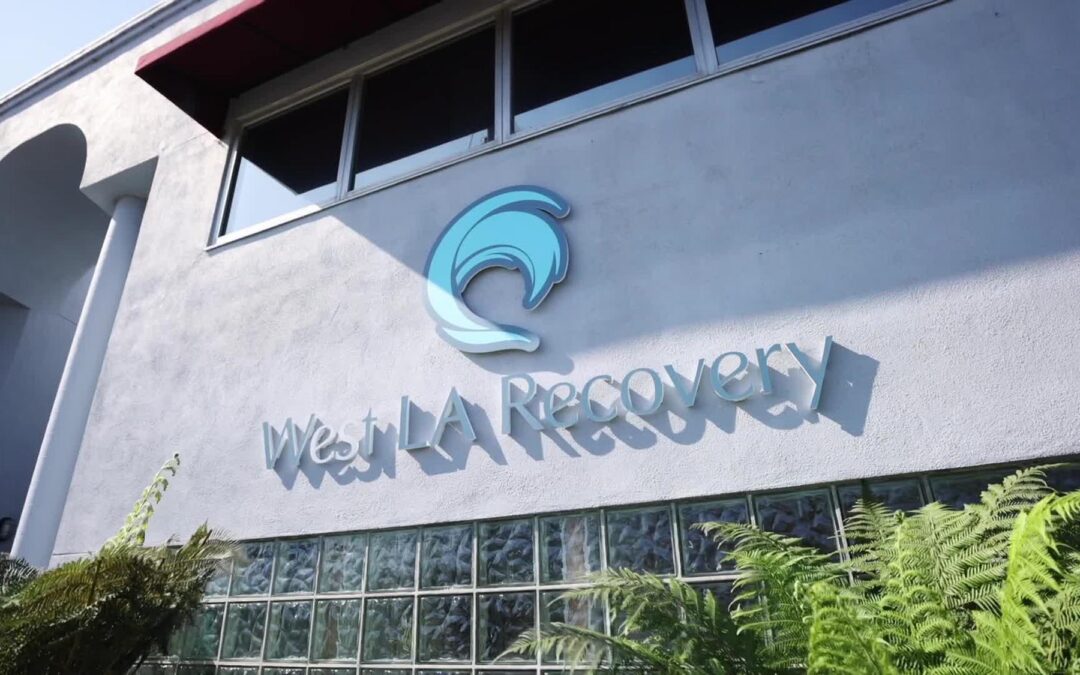The Continuing Role of Therapy After Rehab

Completing an inpatient rehabilitation program is a significant milestone in your recovery journey, but it’s not the end. Therapy after rehab is crucial for turning your initial progress into lasting change. You’ve put in a lot of effort to make breakthroughs during treatment, and ongoing recovery requires dedicated work to maintain and build upon those improvements.
Bridging the Gap Between Rehab and Independent Living
Post-rehab therapy acts as a bridge between the structured environment of inpatient care and the challenges of living independently. This transition period can be overwhelming without proper support, making continued therapeutic intervention essential for long-term success. You need professional guidance to handle real-world triggers, stressors, and situations that weren’t present in the safe space of your treatment facility.
The Importance of Specialized Approaches
The world of therapy goes beyond traditional talk therapy. Your recovery can benefit from various specialized methods:
- Physical therapy – Helps regain strength and mobility affected by substance use
- Occupational therapy – Focuses on developing practical life skills and adaptive strategies
- Speech therapy – Works on improving communication difficulties and cognitive function
- Psychological therapy – Supports mental health and emotional stability
Why Therapy Matters in Recovery
So why is therapy so important after rehab? Because recovery is an ongoing process that needs constant reinforcement of healthy coping mechanisms, relapse prevention techniques, and personal growth. You deserve comprehensive support that addresses every part of your healing journey, ensuring that the progress you’ve fought hard for becomes a permanent transformation.
1. Sustaining and Building on Rehabilitation Progress
Physical therapy after rehab becomes your foundation for achieving mobility goals that extend far beyond what initial treatment could accomplish. You’ll work with specialized therapists who design progressive exercise programs targeting specific muscle groups, joint flexibility, and cardiovascular endurance. These sessions focus on real-world movements like climbing stairs, walking longer distances, or returning to recreational activities you enjoyed before your condition developed.
Occupational therapy benefits emerge through practical skill development that transforms how you navigate daily challenges. Your therapist will assess your home environment and teach you adaptive techniques for cooking, bathing, dressing, and managing household tasks. You’ll learn to use assistive devices effectively while developing strategies that maximize your independence. This might include reorganizing your kitchen layout, practicing one-handed techniques, or mastering new ways to manage personal care routines.
Cognitive rehabilitation addresses the mental processing challenges that often accompany physical recovery. Speech therapists work with you to rebuild communication skills, improve memory function, and enhance problem-solving abilities. You’ll practice exercises that strengthen attention span, word retrieval, and social communication patterns essential for workplace and family interactions.
Your personalized therapy plan evolves based on your specific progress markers and changing needs. Therapists regularly reassess your capabilities and adjust treatment goals, ensuring each session builds upon previous achievements while introducing new challenges that promote continued growth and functional improvement.
2. Preventing Secondary Complications and Promoting Independence
Preventing complications post-rehab becomes a critical focus as you transition from structured rehabilitation to independent living. Without continued therapeutic support, you face increased risks of developing serious health issues that can derail your recovery progress.
Medical Complications That Therapy Helps Prevent
Ongoing therapy sessions actively monitor and address potential complications:
- Pressure sores from prolonged sitting or lying in one position
- Blood clots due to reduced mobility and circulation issues
- Pneumonia from weakened respiratory function or aspiration risks
- Muscle contractures and joint stiffness from decreased activity
Building Self-Management Skills
Your therapy team provides essential education for self-management and caregiver involvement, teaching you to recognize warning signs and implement preventive measures. You learn proper positioning techniques, skin inspection routines, and breathing exercises that become part of your daily routine.
Caregivers receive training on safe transfer techniques, medication management, and emergency protocols, creating a comprehensive support network for your long-term management.
Environmental Modifications for Safety
Therapy professionals assess your living environment and recommend specific modifications. Installing grab bars in bathrooms, ramps for wheelchair access, and proper lighting reduces fall risks significantly. These assistive devices transform your home into a safer space that supports your independence in daily activities.
Your occupational therapist works with you to identify potential hazards and implement solutions that promote autonomy in home and community settings, allowing you to navigate your environment confidently and safely.
3. Supporting Mental Health and Psychosocial Adjustment
Mental health after rehab presents unique challenges that require specialized attention and ongoing support. The psychological impact of addiction recovery often extends far beyond the initial treatment phase, affecting personality, mood, and social functioning in ways that demand continued therapeutic intervention.
Understanding Personality Changes
Personality changes frequently emerge during recovery, leaving individuals feeling disconnected from their former selves. You might experience shifts in emotional regulation, social preferences, or decision-making patterns that feel foreign and unsettling. Professional psychological support in recovery helps you navigate these changes while developing a stable sense of identity in sobriety.
Addressing Depression and Anxiety
Depression and anxiety commonly surface as the brain adjusts to functioning without substances. These conditions can manifest weeks or months after completing initial treatment, making ongoing therapy essential for early detection and intervention. Psychiatric support integrated into your comprehensive therapy plan addresses these mental health challenges through:
- Medication management when clinically appropriate
- Cognitive-behavioral interventions targeting negative thought patterns
- Stress reduction techniques tailored to your specific triggers
- Emotional regulation skills for managing intense feelings
The Importance of Supporting Loved Ones
However, it’s not just the individual who needs support during this time. Supporting a loved one in addiction treatment is crucial. It involves understanding their struggles, being patient with their recovery process, and encouraging them to seek the professional help they need.
The Role of Therapy After Rehab
Therapy after rehab serves as your psychological anchor, maintaining the motivation and coping skills you developed during treatment. Regular sessions provide a safe space to process setbacks, celebrate progress, and refine the mental health strategies that keep you grounded in recovery while building resilience for long-term sobriety success.
4. Facilitating Successful Reintegration into Society
Community reintegration after rehab requires careful preparation and ongoing support to help you navigate the complexities of returning to everyday life. Therapy plays a crucial role in rebuilding the cognitive, physical, and social skills necessary for meaningful participation in your community.
Return to Work or School
Your return to work or school depends heavily on regaining specific abilities that therapy addresses systematically:
- Occupational therapists work with you to improve concentration, memory, and problem-solving skills essential for academic or professional success.
- Physical therapy enhances coordination and stamina needed for workplace demands.
- Speech therapy addresses communication challenges that might affect job interviews or classroom participation.
Social Participation
Social participation becomes more achievable through targeted therapeutic interventions:
- You’ll practice conversation skills.
- Learn to interpret social cues.
- Develop strategies for managing anxiety in group settings.
These sessions help you rebuild confidence in social situations that may feel overwhelming after extended treatment.
Family Life Transitions
Adaptive techniques learned through therapy make family life transitions smoother:
- You’ll discover new ways to participate in household responsibilities.
- Engage with children or partners.
- Maintain relationships despite any lingering challenges from your recovery journey.
Identifying Community Resources
Therapists also help you identify community resources and support networks that align with your interests and recovery goals. This might include volunteer opportunities, recreational activities, or support groups that provide ongoing connection and purpose as you establish your new life in the community.
5. Improving Long-Term Quality of Life and Sobriety Maintenance Strategies That Work Beyond the Treatment Phase
Will therapy help me stay sober? This question is on the minds of many people finishing their first treatment. The answer is a definite yes. Regular therapy sessions provide support that strengthens the skills you learned during rehab, turning them from weak new habits into strong, automatic responses.
Should I keep going to therapy after detox? Your sobriety toolkit needs constant improvement. Therapy sessions give you dedicated time to practice coping mechanisms, identify emerging triggers, and adjust your relapse prevention strategies as life changes. You’ll collaborate with your therapist to create personalized plans that address your specific vulnerabilities, whether that means avoiding certain social situations or implementing daily mindfulness practices.
The benefits of continued therapy go beyond just preventing crises. You’ll uncover new levels of self-awareness, develop better emotional control skills, and build resilience against unexpected stressors. Your therapist becomes your accountability partner, helping you spot warning signs before they escalate into dangerous territory.
Staying sober after rehab means understanding that recovery is not a destination but an ongoing journey. Therapy sessions act as regular check-ins with your mental health, similar to how you might visit a doctor for physical wellness. You’ll learn to handle complex emotions, relationship issues, and life transitions without falling back into old patterns of substance use.
Recovery Month 2025: A Time to Commit to Long-Term Therapy for Lasting Change
Recovery Month 2025 presents the perfect opportunity to recommit to your therapeutic journey beyond initial treatment. This national awareness initiative emphasizes that sustained recovery efforts require ongoing professional support, making it an ideal time to establish or strengthen your therapy routine.
The broader context of Recovery Month 2025 reinforces a critical truth: recovery extends far beyond the walls of any treatment facility. Community support for sobriety grows stronger when individuals recognize that healing is a continuous process, not a destination. This understanding transforms how you approach your post-rehab life.
During this awareness month, it becomes crystal clear why therapy matters in recovery. Your commitment to ongoing therapeutic support demonstrates dedication to long-term wellness while inspiring others in your community. Recovery Month 2025 serves as a powerful reminder that professional guidance remains essential throughout your journey.
Recovery represents a lifelong commitment that deserves professional support at every stage. At West LA Recovery, we understand that therapy after rehab provides the foundation for sustained sobriety and personal growth. This Recovery Month 2025, you can use the national spotlight on recovery to strengthen your resolve and embrace continuous therapeutic care.
Your decision to continue therapy beyond initial treatment reflects wisdom and self-awareness. Recovery Month 2025 celebrates this commitment while encouraging others to follow your example of prioritizing long-term therapeutic support. Support groups can also play a crucial role in this journey, providing invaluable community backing and shared experiences.
For those seeking more information about our services or how we can assist you during this transformative journey, please feel free to reach out through our contact page.
FAQs (Frequently Asked Questions)
Why is therapy important after rehab for sustained recovery?
Therapy after rehab is crucial for maintaining and building on the gains achieved during inpatient care. It acts as a bridge between rehab and independent living by supporting ongoing recovery through various forms such as physical, occupational, speech, and psychological therapies.
How does physical and occupational therapy support progress after rehab?
Physical therapy improves mobility and strength beyond initial rehabilitation, while occupational therapy enhances daily living skills and adaptive strategies. Together with cognitive and speech therapies addressing communication and memory challenges, personalized therapy plans help tailor progress to individual needs.
What role does therapy play in preventing secondary complications post-rehab?
Continued therapy helps prevent risks like pressure sores, blood clots, and pneumonia by promoting long-term management strategies. It educates individuals and caregivers on self-management, reduces disability through environmental modifications and assistive devices, and promotes autonomy in home and community settings.
How does ongoing therapy support mental health and psychosocial adjustment after rehab?
Therapy addresses personality changes, depression, anxiety related to injury or addiction recovery. Psychiatric support as part of comprehensive therapy helps maintain motivation and coping skills essential for sobriety, ensuring psychological well-being during the recovery journey.
In what ways does therapy facilitate successful reintegration into society post-rehab?
Therapy prepares individuals for returning to work or school by improving coordination, cognition, and perception needed for social engagement. It provides adaptive techniques that ease transitions back to family life and community involvement, fostering social participation.
How can continued therapy help maintain sobriety after rehab?
Regular therapy sessions reinforce skills to remain sober by addressing triggers and developing personalized relapse prevention plans such as avoiding high-risk situations or practicing mindfulness techniques. Ongoing therapy answers common questions like ‘Will therapy help me stay sober?’ emphasizing its importance even after detox.







